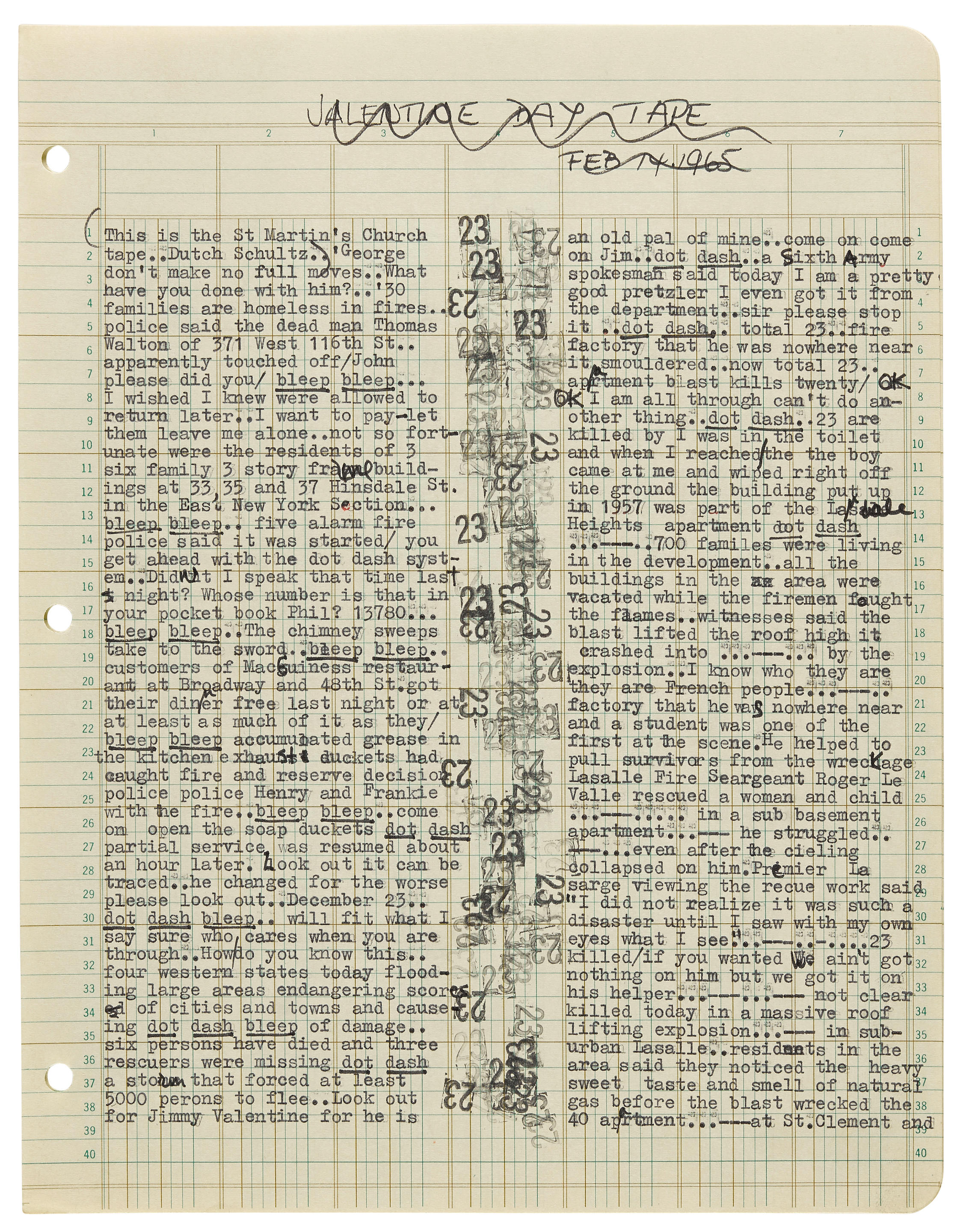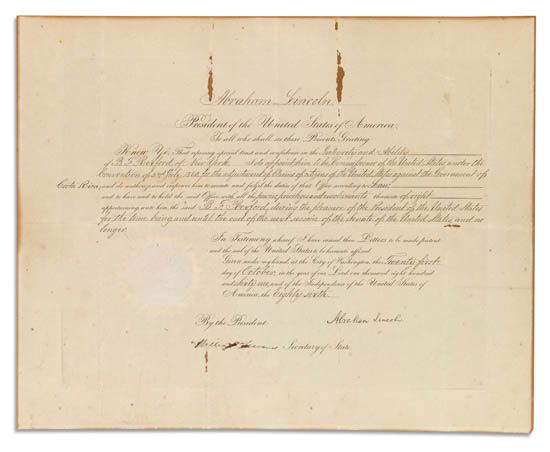1p., partially printed. Burlington, New Jersey, 27 March 1773. Commission for William Dills as Ensign in Col. Jacob Starn's Regiment. Signed Wm. Franklin and witnessed by Charles Pettit, who served as Franklin's secretary from 1772-1774. He later became the Secretary of State of New Jersey (as specified by the new state constitution of 1776). He later served in the state House of Representatives and the Continental Congress (1785-1787). William Franklin was Benjamin Franklin's acknowledged illegitimate son. Born sometime around 1730, his origins, including maternity, are a bit obscure. Franklin, with his common-law wife, Deborah Read (speculated by some to actually be William's mother), raised the boy, and William always called Deborah "Mother." William studied law in England, and was admitted to the bar. Benjamin lobbied for a position for his son, and in 1763 William was appointed Royal Governor of New Jersey. When the relationship between Britain and her colonies got rocky, William remained loyal to the crown, even as his father helped lead the revolutionaries. Eventually the two stopped even trying to convince the other that his position was the correct one. William was placed under house arrest in January 1776, and after July 4 when independence was declared, he was taken into custody. He was eventually released in a prisoner exchange and went to New York, then under British control, where he became president of the Board of Associated Loyalists. He also tried to generate guerilla activity on the part of the Loyalists, but was hindered by General Clinton, who did not approve of the plan. Franklin was thought to be behind the hanging of some prisoners of war, prompting threats of retaliation with British POWs. In 1782 William finally left for England, never to return. The elder Franklin did visit his son once when returning from France to the new nation, but reportedly most discussion was of a practical nature, in part, the elder Franklin's financial affairs. He left virtually nothing to his son, stating at one point that, had the British won, he would have had no wealth to give him. Franklin did leave a manuscript autobiography which was dedicated to his son, but it would be his grandson, Temple (William Temple Franklin, also illegitimate), designated as literary heir, who would publish it. Condition: Several splits along folds, making this a bit difficult to read. But most paper is there. At present framed and glazed, with the framing in part holding together the pieces.
1p., partially printed. Burlington, New Jersey, 27 March 1773. Commission for William Dills as Ensign in Col. Jacob Starn's Regiment. Signed Wm. Franklin and witnessed by Charles Pettit, who served as Franklin's secretary from 1772-1774. He later became the Secretary of State of New Jersey (as specified by the new state constitution of 1776). He later served in the state House of Representatives and the Continental Congress (1785-1787). William Franklin was Benjamin Franklin's acknowledged illegitimate son. Born sometime around 1730, his origins, including maternity, are a bit obscure. Franklin, with his common-law wife, Deborah Read (speculated by some to actually be William's mother), raised the boy, and William always called Deborah "Mother." William studied law in England, and was admitted to the bar. Benjamin lobbied for a position for his son, and in 1763 William was appointed Royal Governor of New Jersey. When the relationship between Britain and her colonies got rocky, William remained loyal to the crown, even as his father helped lead the revolutionaries. Eventually the two stopped even trying to convince the other that his position was the correct one. William was placed under house arrest in January 1776, and after July 4 when independence was declared, he was taken into custody. He was eventually released in a prisoner exchange and went to New York, then under British control, where he became president of the Board of Associated Loyalists. He also tried to generate guerilla activity on the part of the Loyalists, but was hindered by General Clinton, who did not approve of the plan. Franklin was thought to be behind the hanging of some prisoners of war, prompting threats of retaliation with British POWs. In 1782 William finally left for England, never to return. The elder Franklin did visit his son once when returning from France to the new nation, but reportedly most discussion was of a practical nature, in part, the elder Franklin's financial affairs. He left virtually nothing to his son, stating at one point that, had the British won, he would have had no wealth to give him. Franklin did leave a manuscript autobiography which was dedicated to his son, but it would be his grandson, Temple (William Temple Franklin, also illegitimate), designated as literary heir, who would publish it. Condition: Several splits along folds, making this a bit difficult to read. But most paper is there. At present framed and glazed, with the framing in part holding together the pieces.




.jpg)







.jpg)
.jpg)

Try LotSearch and its premium features for 7 days - without any costs!
Be notified automatically about new items in upcoming auctions.
Create an alert